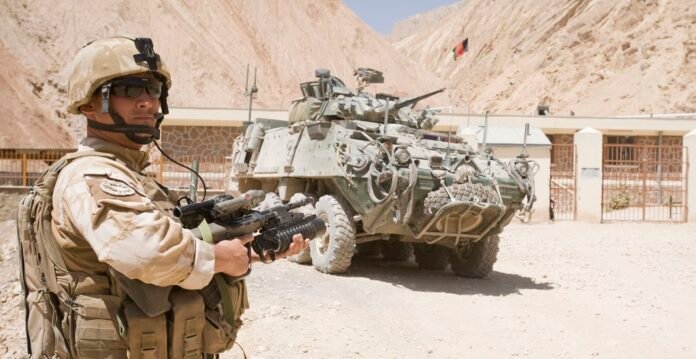The United States and Israel launched air strikes on Iranian nuclear sites at Fordow, Natanz, and Isfahan. President Trump called this a strong move against Iran’s nuclear goals, stating the U.S. is “fully aligned” with Israel to stop Iran from developing a bomb. However, experts caution that these strikes might not stop nuclear spread but could break international law norms and lead to a more unstable world where powerful countries act without restraint.
Background: From Covert Raids to Overt Assault
Since 2018, Israel has secretly targeted Iran’s nuclear program with limited strikes. Prime Minister Netanyahu, citing intelligence on uranium enrichment and potential weaponization, urged U.S. intervention. The U.S. had avoided direct involvement, opting to provide intelligence and munitions to prevent a wider conflict. However, this changed on June 21, when U.S. B-2 bombers from Missouri joined Israeli F-35s in coordinated attacks on three heavily fortified sites.
The Targets: Fordow, Natanz and Isfahan
Fordow, near Qom, is buried under 300 feet of rock, hosting centrifuges enriching uranium to 60% U-235, exceeding peaceful levels. Natanz, a vast underground site south of Isfahan, contains more centrifuges and research labs. Isfahan’s plants complete the fuel cycle. The coalition targeted all three to severely damage Iran’s nuclear capabilities. U.S. Defense Secretary Pete Hegseth stated the attacks “overwhelmed” Iran’s defenses, delaying enrichment by years.
Political Calculus in Washington and Jerusalem
President Trump, promoting an “America First” policy to avoid deep Middle East involvement, is pressured by pro-Israeli Republicans and hawkish advisers who believe a strong strike is needed to deter Iran. Netanyahu, recently surviving corruption charges and elections, aimed to reassure Israeli voters about security. This alliance brought together two populist leaders who distrust multilateral diplomacy and oppose the 2015 Iran nuclear deal.
International and Regional Reactions
Tehran denounced the attacks as “blatant aggression” and promised retaliation. Supreme Leader Ayatollah Ali Khamenei stated that all options, including striking U.S. bases in the Gulf, are open. European Union foreign ministers, gathering in Vienna to discuss the JCPOA, criticized the air strikes as “counterproductive” and urged an immediate ceasefire and a return to diplomacy. Russia and China, both permanent members of the Security Council, condemned the operation as violating Iran’s sovereignty and undermining the United Nations Charter.
Legal and Normative Implications
For over seventy years, the post-WWII order was based on state sovereignty, non-intervention, and collective security under the U.N. Only Security Council approval or self-defense justified force. Israel’s 1981 bombing of Iraq’s Osirak reactor was an early example, claiming self-defense, though not widely accepted. By aligning with Israel without U.N. approval, the U.S. risks breaking the norm against unilateral preventive aggression. Critics caution that if major powers attack each other’s critical infrastructure, smaller states might feel forced to do the same or pursue nuclear weapons.
The Iranian Response: Asymmetric Retaliation and Proxy Warfare
Iran’s Revolutionary Guard Corps (IRGC) fired missiles at U.S. air bases in Qatar and Iraq, mostly stopped by Patriot systems. In Iran, state media showed anti-aircraft fire lighting up Tehran’s night sky. Proxy militias in Lebanon, Yemen, and Syria pledged attacks on U.S. and Israeli targets, risking conflict escalation. The Red Sea shipping lanes, vital for global oil trade, are under threat from Houthi drone and missile attacks, supporting Iran.
Proliferation Risks: A Boomerang Effect
Pentagon studies suggest that Iran could quickly erase years of delay in nuclear development by speeding up underground enrichment or secretly acquiring uranium. Iran’s hardliners might believe that only nuclear weapons ensure their survival after observing U.S. military actions. U.S. officials privately acknowledge that such strikes might trigger a regional arms race, prompting Saudi Arabia and Egypt to increase nuclear collaboration with Pakistan or China.
Diplomatic Fallout and Future Negotiations
European nations, frustrated by the U.S. exit from the JCPOA in 2018 under Trump, view current attacks as proof against the “maximum pressure” approach. EU’s Josep Borrell insists these events should boost, not end, diplomatic efforts. China and Russia remain committed to restoring multilateral agreements, urging Tehran to negotiate. However, Tehran, angered by the attacks, has already broken IAEA seals at underground facilities, hindering inspections.
Domestic Politics in the United States
Trump’s Republican supporters celebrate the operation as decisive leadership. However, Senate arms control advocates, including some Republicans, question the legal basis for cross-border strikes. A rising group in Congress insists on a binding Authorization for Use of Military Force (AUMF), arguing that only lawmakers can approve extended military actions. Meanwhile, Democratic calls for restraint and oversight are often dismissed by conservatives as being lenient on terrorism.
Looking Ahead: Escalation or De-escalation?
The coming days will reveal if the air strikes are just a single punitive act or the start of a larger conflict. Iran’s intelligence chief warns that further “crimes” will have “historic consequences.” The U.S. Central Command has deployed more carrier strike groups to the Gulf, indicating readiness for wider conflict. Israel is prepared for more extensive actions if Iran does not yield. However, regional allies like Jordan, the Gulf Arab states, and Turkey call for de-escalation, fearing a humanitarian crisis and economic turmoil from rising oil prices.
Conclusion: A Turning Point in the International System
The U.S. joining Israel to attack Iran’s nuclear sites is a major shift in global politics since the Cold War. This action breaks traditional limits on using force alone, strains the U.N., and could worsen nuclear spread. Historians may compare 2025 to the 2003 Iraq invasion or the 1967 Six-Day War as a pivotal moment. This move highlights a troubling trend: powerful nations, once restrained to superpower conflicts, now act freely in regional disputes, risking a wave of military interventions globally.
READ MORE: US–Israel Strikes on Iran Mark Turning Point for Global Order
